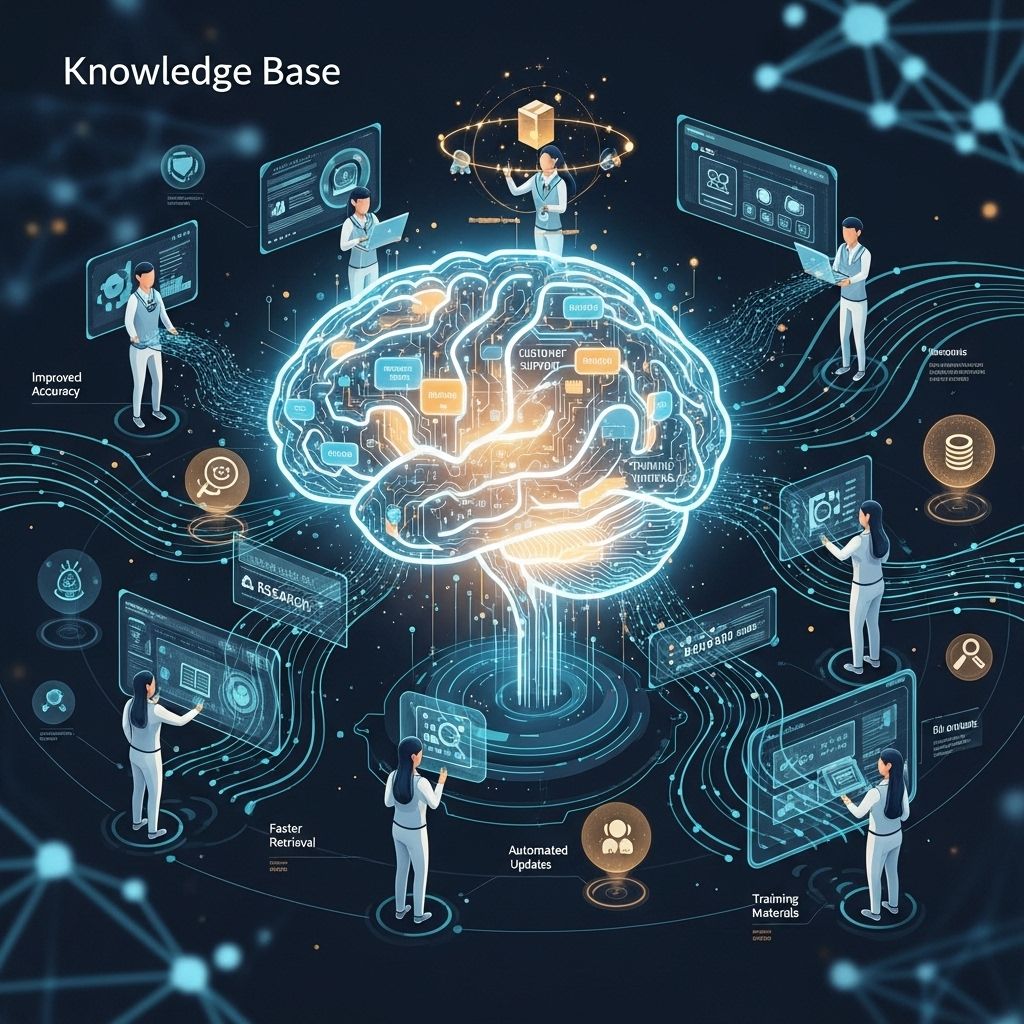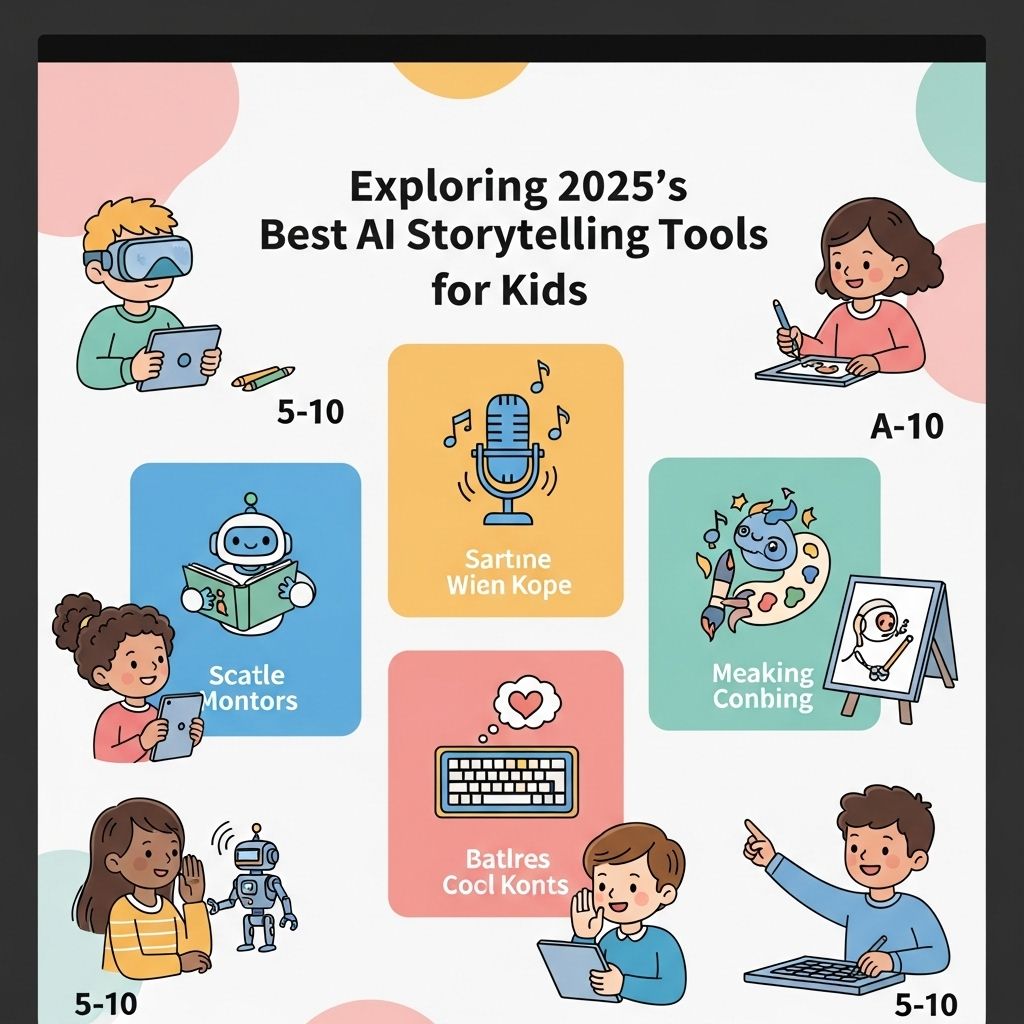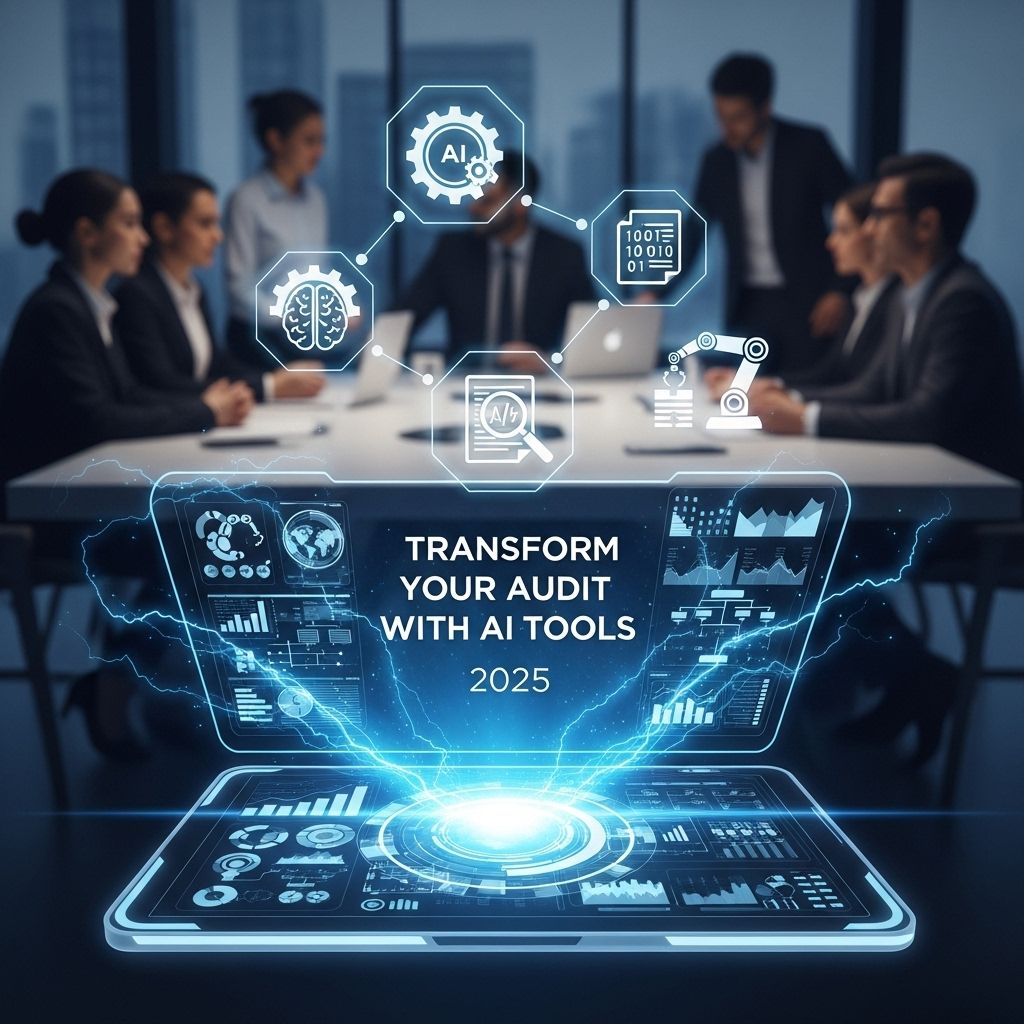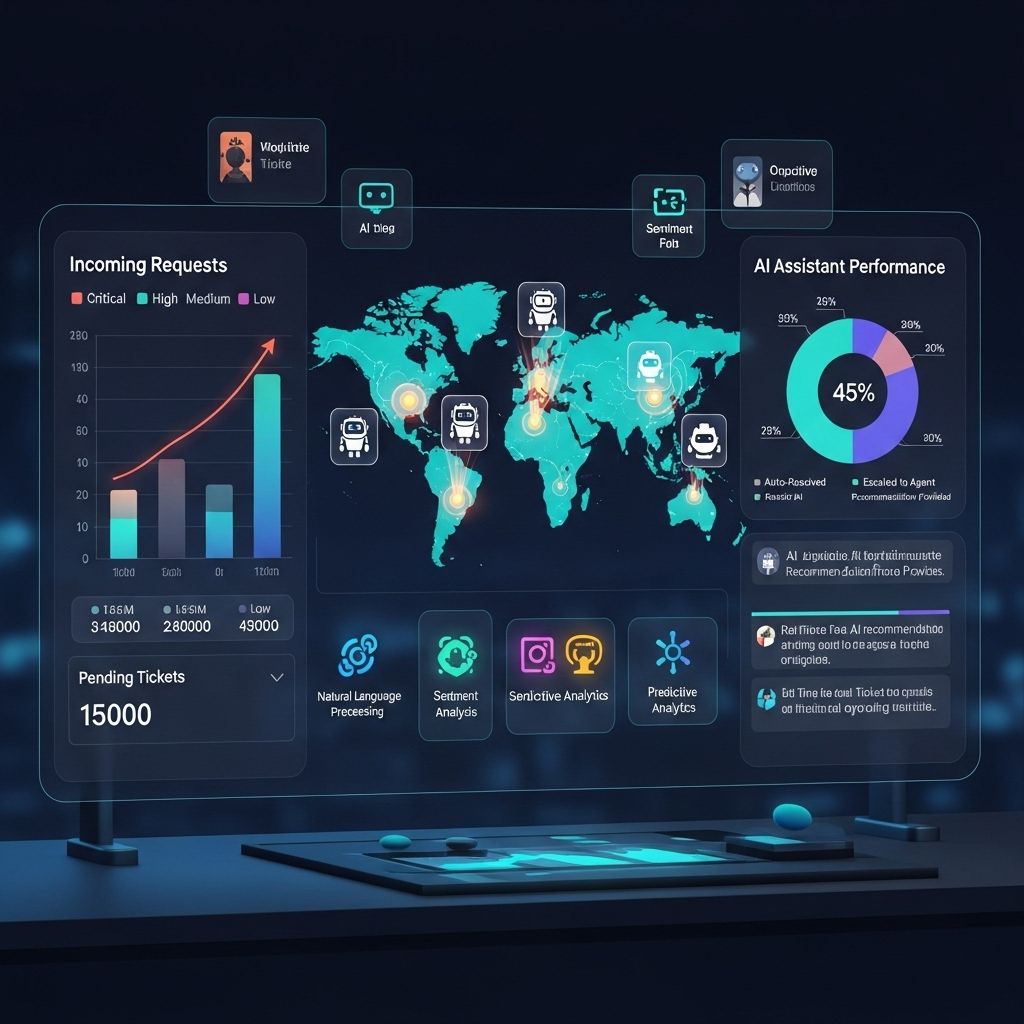Enhancing Your Knowledge Base with AI Assistants
Discover how to effectively integrate AI assistants into your knowledge base to improve efficiency and user experience.

In the rapidly evolving landscape of technology, organizations are increasingly turning to artificial intelligence (AI) to enhance their operations. One significant application of AI is in augmenting knowledge bases, substantially improving information management and access. By integrating AI assistants, companies can streamline processes, reduce response times, and offer more personalized customer experiences. This article explores how AI assistants can enhance knowledge bases, the technologies involved, and the benefits they bring to businesses.
Table of Contents
Understanding Knowledge Bases
A knowledge base is a centralized repository that stores information, documents, and data in a structured format. It allows users to easily access information and support decision-making processes. Typically, knowledge bases can be:
- Internal: Used within an organization to facilitate data sharing among employees.
- External: Available to customers, often in the form of FAQs, guides, and tutorials.
The Role of AI in Knowledge Management
Artificial intelligence plays a pivotal role in managing knowledge bases by automating various processes, providing insights, and enhancing user interactions. Here’s how AI transforms knowledge management:
- Automation: AI can automate content creation, updates, and organization, ensuring that knowledge bases remain current.
- Advanced Search Capabilities: AI-powered search tools allow users to find specific information quickly by understanding natural language queries.
- Contextual Responses: AI assistants can provide contextual answers or suggestions based on user input, improving the efficiency of information retrieval.
Types of AI Assistants
AI assistants vary significantly in their capabilities and implementations. Understanding the different types can help organizations choose the right solution for their needs:
1. Chatbots
Chatbots are AI-driven tools that simulate human conversation. They can operate on websites, messaging platforms, or within apps, providing immediate responses to user inquiries.
2. Virtual Assistants
Virtual assistants like Google Assistant, Siri, and Alexa use advanced machine learning algorithms to perform a variety of tasks, including managing schedules, controlling smart devices, and answering FAQs.
3. Conversational Agents
Conversational agents are more advanced than chatbots, employing natural language processing (NLP) to understand and respond to complex queries effectively.
Integrating AI Assistants into Knowledge Bases
The integration of AI assistants into knowledge bases can be achieved through several methods:
API Integration
Many AI solutions offer APIs (Application Programming Interfaces) that allow seamless integration with existing knowledge management systems. This facilitates automated updates and real-time interactions.
Machine Learning Models
Organizations can implement machine learning models to analyze user interactions and improve the knowledge base’s content and search functionality over time.
Natural Language Processing (NLP)
NLP enables AI assistants to understand user queries effectively. By training NLP models on existing databases, AI can improve response accuracy and relevance.
Benefits of AI Enhancement
The integration of AI assistants provides numerous advantages for knowledge bases:
1. Improved Efficiency
AI assistants can process inquiries and retrieve information faster than human agents, leading to reduced response times:
| Task | Traditional Method | AI-Powered Method |
|---|---|---|
| Information Retrieval | Minutes | Seconds |
| Updating Information | Hours | Real-Time |
2. Enhanced User Experience
Customers appreciate quick, accurate responses. AI assistants can provide:
- 24/7 availability
- Personalized interactions based on user history
- Multilingual support
3. Cost Effective
By automating responses to common inquiries, businesses can reduce the burden on human staff, leading to lower operational costs over time.
Challenges and Considerations
While the integration of AI assistants into knowledge bases offers many benefits, organizations should also consider potential challenges:
1. Data Privacy
Ensuring data privacy and compliance with regulations (e.g., GDPR) is crucial when implementing AI technologies.
2. Quality Control
AI-generated content must be monitored to maintain accuracy and relevance. Frequent updates and human oversight are necessary to ensure quality.
3. User Acceptance
Some users may be hesitant to interact with AI. Providing clear communication about AI capabilities can help alleviate concerns and encourage adoption.
Future Trends in AI for Knowledge Bases
The future of AI in knowledge management is exciting, with several trends likely to shape its evolution:
1. Enhanced Personalization
AI will continue to refine personalization strategies, offering tailored experiences that adapt to individual user preferences over time.
2. Integration with Other Technologies
AI will increasingly integrate with other technologies, such as augmented reality (AR) and virtual reality (VR), to create immersive knowledge-sharing experiences.
3. Improved Emotional Intelligence
Future AI systems will develop better emotional intelligence, allowing them to respond to user emotions and enhance interactions significantly.
Conclusion
The incorporation of AI assistants into knowledge bases marks a significant transformation in how organizations manage information and interact with users. By automating processes, personalizing experiences, and enhancing efficiency, AI assistants offer a powerful tool for businesses looking to stay competitive in the digital age. As technology evolves, the possibilities for improving knowledge management through AI will continue to expand, paving the way for more innovative solutions in the future.
FAQ
What are AI assistants and how can they enhance knowledge bases?
AI assistants are intelligent software applications that utilize machine learning and natural language processing to provide users with information and support. They can enhance knowledge bases by automating responses, improving search functionality, and providing personalized recommendations.
What benefits do AI assistants offer for managing knowledge bases?
AI assistants offer numerous benefits, including 24/7 availability, quick access to information, reduced workload for human agents, and the ability to learn and adapt over time to provide more accurate answers.
Can AI assistants improve user engagement with knowledge bases?
Yes, AI assistants can significantly improve user engagement by providing interactive experiences, answering queries in real-time, and guiding users to relevant information, thereby making knowledge bases more accessible and user-friendly.
How can businesses integrate AI assistants into their existing knowledge bases?
Businesses can integrate AI assistants into their knowledge bases by leveraging APIs, utilizing platforms that support AI capabilities, and customizing the assistants to align with their specific content and user needs.
What types of queries can AI assistants handle in knowledge bases?
AI assistants can handle a wide range of queries, including frequently asked questions, troubleshooting steps, product information, and user guides, ensuring that users receive timely and accurate responses.
Are AI assistants cost-effective for knowledge base management?
Yes, AI assistants can be cost-effective as they reduce the need for extensive human support, streamline operations, and improve response times, ultimately leading to higher customer satisfaction and retention.







